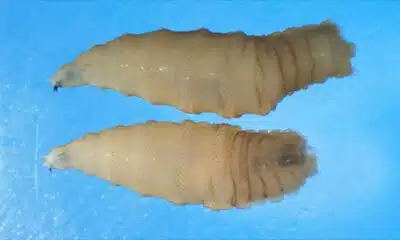(The Center Square) – The Texas House has advanced two abortion-related bills that already passed the Senate.
On Thursday, the House passed SB 33, filed by state Sen. Donna Campbell, R-New Braunfels, which bans taxpayer money from being used to assist with travel outside of Texas to have an abortion. The bill passed the House by a vote of 87-57. It passed the Senate in April by a vote of 22-9.
Campbell filed the bill after officials in Austin and San Antonio allocated millions of taxpayer funds for “abortion travel” in violation of state law, The Center Square reported.
“Currently, ‘abortion providers’ may no longer commit legal abortion within the state. Even if they did, cities would be prohibited from engaging in business with them. However, cities have found a way to use taxpayer money to support abortion while skirting the law. Instead, they are giving money to entities that aid or abet abortions in some form but are not directly abortion providers themselves. So far, Austin has directly spent money to this end while the San Antonio city council has repeatedly attempted this blatant misuse of Texan taxpayer funds. Other cities are likely to follow suit without legislation that prohibits such actions explicitly,” Campbell’s bill analysis explains.
The bill explicitly prohibits governmental transactions with abortion assistance entities to ensure that taxpayer funds aren’t used to indirectly support or facilitate out-of-state abortion services. It amends state to law to expand the definition of “abortion assistance entities” to include any organization or individual that “provides financial support, travel arrangements, childcare, or other logistical services that facilitate access to abortions.”
It also empowers the Office of the Attorney General, state residents, or individuals within a political subdivision to sue “any entity engaging in prohibited transactions, with provisions for recovering misused funds, court costs, and attorney’s fees.”
The author of Texas’ Heartbeat Act, state Sen. Bryan Hughes, R-Mineola, filed the Life of the Mother Act, SB 31, which unanimously passed the Senate in late April. State Rep. Charlie Geren, R-Fort Worth, filed companion legislation, HB 44, in the Texas House.
It passed the House Wednesday by a vote of 89-57 after a heated debate.
Despite Gov. Greg Abbott saying earlier this year that there was no need to amend the state’s Human Life Protection Act, state lawmakers advanced the bill.
Abbott signed the Human Life Protection Act into law in June 2021, which became effective after the U.S. Supreme Court overturned Roe v Wade in 2022. Texas law prohibits all elective abortions of preborn children with the exception of saving the life of the mother. The law and other Texas abortion bans were challenged in court and upheld by the U.S. Supreme Court and Texas Supreme Court. Last May, the Texas Supreme Court ruled that doctors could use “reasonable medical judgment” when determining when a medical necessity justified performing an abortion. The Texas Medical Board also established rules and guidelines.
SB 31 “seeks to clarify existing medical emergency exceptions to otherwise prohibited abortions, which are spread throughout or implicated by multiple provisions in different codes, and provide uniformity among them.” It also establishes continuing medical education and continuing legal education courses about state abortion laws and the bill’s medical emergency exceptions, the bill analysis explains.
It revises state law “relating to exceptions to otherwise prohibited abortions based on a physician’s reasonable medical judgment,” which several Republicans argue creates a loophole to allow elective abortions.
SB 31 passed by a vote of 134-4 after heated debate. Four Republicans voting against it: Harrison; Hopper; Lowe; Pierson, according to an unofficial vote tally.
Seven Republicans voted “Present, not voting:” Holt; Money; Mr. Speaker; Olcott; Swanson; Tinderholt; Toth. Five members were absent and didn’t vote.
Democrats overwhelmingly voted for it.
According to the latest data published by the Texas Health and Human Services Commission, zero elective abortions and 157 medically necessary abortions have been performed in Texas since the U.S. Supreme Court overturned Roe v Wade and Texas’ abortion ban went into effect in August 2022. This is up from 145 medically necessary abortions performed that were reported in March, The Center Square reported.
If an average of 2,852 abortions performed per month in the first six months of 2022 were to have continued, an estimated 79,856 elective abortions would have been reported by October 2024, based on the data. Meaning, Texas abortion bans reduced elective abortion by nearly 80,000 in a roughly two-year time span.
No doctor has been prosecuted, sued, or sanctioned for performing any of the medically necessary abortions reported to the state. Several people have been arrested and are being prosecuted for operating illegal abortion facilities, The Center Square reported. Elective abortions performed at these facilities were not reported to the state.















































